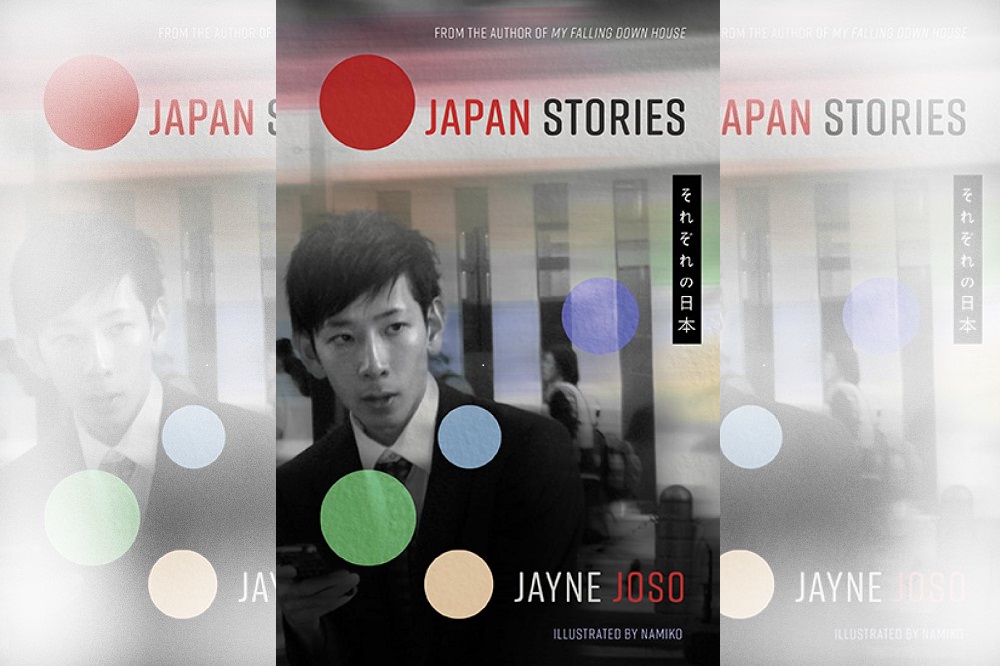Review: Japan Stories

Jon Gower
Last year was the 40th anniversary of Seren Books, whose roster of books has recently included some strong collections of short stories by writers such as Angela Graham and the ever-dependable Chris Meredith. Taking its place on the same section of the shelf is Jayne Joso’s ‘Japan Stories.’ Well, not quite.
This latest volume by the writer of the much-lauded novel ‘My House Falling Down’ contains short fictions rather than short stories and are therefore not so easily pigeon-holed. The author seems to encourage this idea in the words that preface the collection. Here the Russian painter Kandinsky suggests that ‘The artist must be blind to distinctions between ‘recognized’ or ’unrecognized conventions of form, deaf to the transitory teaching and demands of his particular age. He must watch only the trend of inner need, and hearken its words alone.’
The fictions here are chock full of the inner needs of characters, just as much as the artist who has brought them into being and are usually vignettes of a person’s life and its challenges. In one of my favourites, ‘Sachiko and Saeko,’ we meet the two eponymous women. Sachiko is a woman on the verge of becoming homeless, who seems to have struck lucky when she’s offered a dusty room by a kind stranger called Saeko, who lives alone other than for her two dogs. But kindness is soon replaced by inquisitiveness, with lists of questions asked and new house rules creeping in. The rent is to be paid monthly, cash, in advance and there are to be no male callers. That all sounds reasonably hunky dory but soon the new lodger finds that things are a little odd.
The two dogs, Mozart and Clementine are yapping reminders of Saeko’s travelling youth, when ‘she had tasted the sweetest clementines on a visit to Spain and had listened to Mozart in Vienna.’ She had also danced ‘a tango…somewhere; and in London, had tea at the Ritz.’ But then their owner hurls a slipper at one of the dogs, then criticizes the smells coming out of the lodger’s kitchen, before meanly suggesting she should bathe in leftover water, thus saving the expense of heating extra water.
Tensions simmer between them and threaten to come to the boil, not least because of Sachiko’s protectiveness towards the pair of Yorkshire terriers, who occasionally suffer their owner’s anger. Luckily, the tale has a redemptive ending, at least for the dogs.
Another affecting fiction tells of a similar relationship between an illustrator of children’s books who welcomes a homeless man into her home, who then settles in and keeps on doing so, establishing comforting domestic rhythms and cleaning the house with the juice of fresh lemons.
Off-kilter
Other fictions are similarly off-kilter, such as ‘Mrs Murata’ who knits life-sized people to help re-populate a part of the main island of Honshu, which has emptied of youngsters who up-sticks to live in Tokyo. In our encounter with ‘Mr Seki’ we visit towns which use bar-codes to help identify people with dementia should they happen to get lost, while ‘Misaki’ chronicles the building of an enormous, rickety tower by a woman who is spied on by her neighbour as she does so. It’s a story that ends in an unexpectedly brutal way, not least because the reader is cajoled into imagining a different ending. While a story such as the one that revolves around ‘Shohei’ is charmingly odd right from the off, detailing, as it does a love affair between a novice monk and a woman called Grace who ‘usually wore baggy jeans and big sweaters in grey and blue. I thought she looked like the sky and the sea and the sun. And I told her so. I would never speak like that to a Japanese girl, but I always felt confident with her. She made it easy. I would say she made it easy to fall in love.’
Some of these prose pieces are just a couple of pages’ long, while some of the “Miniatures” that close the collection are mantric single lines, complemented by manga artist Namiko’s delightful drawings. Taken together, the ‘Japan Stories’ constitute a mosaic of modern Japanese life, populated by people making intricate origami or showing off to colleagues by drinking expensive sake, or believing they are David Bowie or making lovely kokeshi dolls. They are written in pellucidly clear prose and wrought like pieces of fine porcelain, unfussy in their language and measured in their telling to the point of being, well, serene.
Japan Stories is published by Seren and you can buy a copy here…
Support our Nation today
For the price of a cup of coffee a month you can help us create an independent, not-for-profit, national news service for the people of Wales, by the people of Wales.






